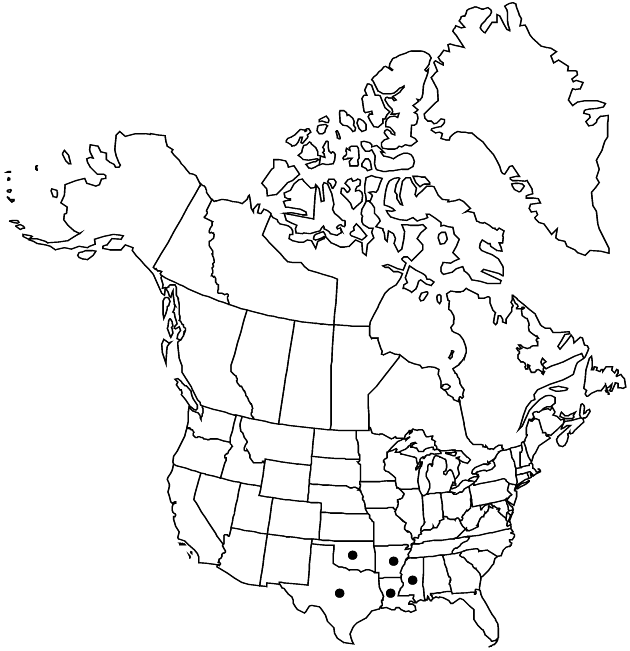Vernonia texana
Fl. S.E. U.S., 1338. 1903.
Plants 4–8 (–10+) dm. Stems puberulent, glabrescent. Leaves basal and cauline; blades ovatelanceolate (basal) to narrowly lanceolate (distal), 5–12+ cm × (5–) 12–25+ mm, l/w = 3–5 (basal) or 8–17 (distal), abaxially glabrate (pitted, awl-shaped hairs in pits), adaxially puberulent and/or scabrellous. Heads in open, paniculiform-scorpioid arrays. Peduncles 1–35 mm. Involucres ± obconic to hemispheric, 4.5–6 × 5–7 mm. Phyllaries 35–45+ in 5–6+ series, glabrescent, margins arachno-ciliolate, the outer lance-deltate, 1–32 mm, inner oblong to linear, 4–5 (–6) mm, tips acute or rounded-apiculate. Florets 12–24+. Cypselae 2–3 mm; pappi usually whitish to stramineous (rarely purplish), outer scales or bristles 20+, 0.3–1+ mm, contrasting or intergrading with 20+, 6–7+ mm inner subulate scales or bristles. 2n = 34.
Phenology: Flowering Jun–Aug.
Habitat: Pinelands, scrub oak woodlands, sandy or sandy-clay soils
Elevation: 60–200 m
Distribution

Ark., La., Miss., Okla., Tex.
Discussion
Selected References
None.
Lower Taxa
"dm" is not declared as a valid unit of measurement for this property."dm" is not declared as a valid unit of measurement for this property."dm" is not declared as a valid unit of measurement for this property.